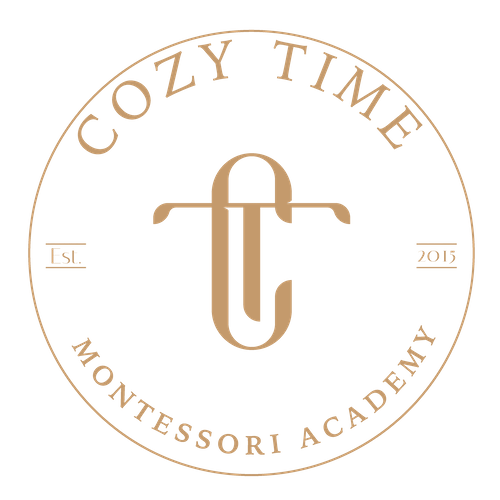A Personal Journey into Montessori Education
As a seasoned educator and mother of a special needs child, my journey into the world of Montessori education was born out of necessity. My son, diagnosed with Autism Spectrum Disorder (ASD) at the age of three, struggled in traditional daycare settings in Toronto. Everything changed when we discovered Montessori education for special needs. The individualized and adaptive learning environment provided by the Montessori approach for special needs allowed him to thrive in ways traditional methods could not. We found that the emphasis on hands-on activities and self-directed learning empowered him, fostering both his confidence and independence. This transformative experience ignited a passion in me to advocate for more inclusive educational practices that cater to children with diverse needs.
Understanding Montessori Education
What is Montessori Education?
Developed by Dr. Maria Montessori in the early 1900s, Montessori education is a child-centered approach to learning. It encourages children to explore their interests at their own pace, fostering a love for learning and promoting independence.
Key Principles of the Montessori Method
- Respect for the Child: In a Montessori environment, each child is valued for their individuality. They are given the freedom to learn at their own pace, with guidance from trained teachers.
- Prepared Environment: Montessori classrooms are meticulously organized into distinct learning areas, each equipped with hands-on materials to facilitate exploration and learning.
- Autoeducation: Montessori educators guide rather than instruct, allowing children to learn through their own discoveries.
Montessori Education and Special Needs
A Brief History of Montessori and Special Needs Education
The Montessori method was first introduced to the world when Dr. Montessori opened a childcare center in Rome, primarily for children with disabilities. Her innovative teaching techniques led to remarkable progress in these children, garnering international attention.
How Montessori Accommodates Children with Special Needs
The beauty of Montessori education lies in its adaptability. It is not a one-size-fits-all approach but instead, it molds itself to the unique needs of each child. This adaptability is particularly beneficial for special needs students. Here’s how:
- Individualized Learning: Montessori education respects each child’s individuality. Children with special needs can learn at their own pace, without the pressure of keeping up with the class.
- Hands-on Materials: The use of hands-on materials in Montessori classrooms caters to different learning styles, offering a practical approach to learning that can be especially beneficial for children with special needs.
- Social Integration: Montessori classrooms encourage social interaction and collaboration, providing opportunities for special needs students to enhance their social skills.
Though my journey began out of necessity, it has blossomed into a passion. Montessori education for special needs has been a game-changer for my son and our family. If you’re a parent, caregiver, or educator working with special needs children in Toronto, I encourage you to explore the option of Montessori education.
For more information, feel free to reach out to us at Cozytime Child Care. As a licensed Montessori center in Toronto, we’re here to support and guide you on this journey. Call us today at (416) 602 3811.
An Unexpected Journey
My journey into the world of Montessori education began unexpectedly when my young daughter was diagnosed with a learning disability. Like any parent, I wanted the best for her, and I was determined to find an educational approach that would enable her to reach her full potential. Little did I know that my search would lead me to the doorstep of a Montessori daycare in Toronto, and what I discovered inside would forever change our lives.
Benefits of Montessori Education for Special Needs Students
Encourages Independence
One of the first things I noticed was how Montessori education encourages independence. The classrooms were designed for children to explore independently, with low shelves and materials within their reach. This setup allowed my daughter to make choices, build confidence, and develop self-reliance – vital skills for her future.
Adaptable Pace and Curriculum
Another benefit of Montessori education is its adaptable pace and curriculum. The teachers at Cozytime Child Care understood that every child is unique and learn at their own pace. They tailored the curriculum to my daughter’s needs, allowing her to learn at a pace that was comfortable for her.
Sensorial Learning
Montessori education also emphasizes sensorial learning, using hands-on materials to engage children’s senses. This approach was particularly beneficial for my daughter, who often struggled with traditional teaching methods. The tactile and visual materials used in the Montessori method helped her to grasp concepts more easily.
Promotes Social Skills
Lastly, Montessori education promotes social skills. The mixed-age classrooms encouraged my daughter to interact with children of different ages, helping her to develop empathy, respect, and understanding.
Success Stories – Case Studies of Special Needs Children Profiting from Montessori Method
My daughter isn’t the only child to benefit from Montessori education. There are countless other success stories of special needs children profiting from this method. I’ve had the opportunity to meet several of these children and their families, and their stories are truly inspiring.
How to Integrate Montessori Techniques at Home
Simple Montessori-based Activities for Home-based Education
One of the best things about Montessori education is that it can easily be integrated into home-based education. Simple Montessori-based activities, such as sorting objects by color or shape, can help children to develop focus and concentration.
The Importance of Creating a Conducive Environment
Creating a conducive environment is also important. A home environment that mirrors a Montessori classroom, with low shelves and child-sized furniture, can foster independence and help children to take ownership of their learning.
Finding a Montessori School for a Child with Special Needs: Things to Consider
Accreditation and Teacher Training
When choosing a Montessori school for a child with special needs, there are several things to consider. Firstly, the school should be accredited and the teachers should have undergone proper Montessori training.
Classroom Environment
The classroom environment is also important. It should be set up to encourage independence, with materials that are easily accessible to the children.
Observing a Class in Progress
Lastly, observing a class in progress can give you a feel for the school’s approach to Montessori education. It’s a good opportunity to see how the teachers interact with the children and how the children respond to the learning materials.
Our journey with Montessori education has been nothing short of transformative. And while every child is unique, I believe that the Montessori method offers valuable benefits for children with special needs. If you’re in Toronto and considering Montessori for your child, I highly recommend getting in touch with Cozytime Child Care at (416) 602 3811.



